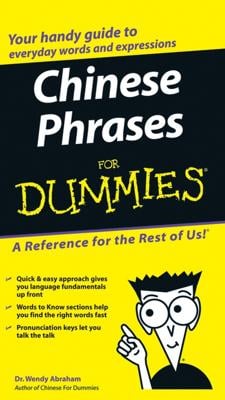Exploring Chinese-speaking countries can be quite an adventure, but if you want to be sure to see everything on your list, you need to know how to ask for directions and how to understand the directions you are given. After all, if you don't know how to understand what you're told, you might miss the very things you hoped to see.
The first thing you need is to know how to ask for directions. To get help you can say máfan nín, wŏ kĕyĭ gēn nín wènlù ma? (Excuse me, may I ask you for directions?). Once you have their attention you'll need to know the following the directions given in Chinese.
yuăn (far)
jìn (close)
pángbiān (next to)
qiánmiàn (in front of)
hòumiàn (behind)
fùjìn (nearby)
dōng (east)
xī (west)
nán (south)
bĕi (north)
yòu (right)
zuŏ (left)
zài lù kŏu (around the block)
zài guăi jiăo (at the corner)
yìzhízŏu (keep going straight)
wàng yòu guăi (turn right)
wàng zuŏ guăi (turn left)
Here are some questions that might come in handy when you need directions.
nĭ zhīdào zĕnme qǜ nàlĭ /năr ma? (Do you know how to get there?)
qĭng nín zài shuō yí cì, hăoma? (Could you repeat that, please?)
qĭng nín shuō màn yì diăn, hăoma? (Could you speak slower, please?)
nĭ kĕyĭ gàosù wŏmen zĕnme qǜa ma? (Would you please tell us how?)
wŏ yīnggāi zuò chē ma? (Should I take a bus?)
zuò jĭlù chē? (What bus number?)
cóng huŏchēzhàn dào lǚguăn yŏu duōyuăn? (How far is the hotel from the train station?)
zuìjìn de yínháng zài nălĭ/năr? (Where is the nearest bank?)
wàng yòu guăi zài nĭ zuŏbiān de dìyītiáo jiē. (Turn right and it is the first street on your left.)
You can use either the word zhuăn or guăi for "turn."
A conversation about directions
The following conversation is typical of getting and receiving directions in Chinese.
Tom: máfan nín, wŏ kĕyĭ gēn nín wènlù ma? (Excuse me. May I ask you for directions?) wŏmen mílù le. (We are lost.)
Nai-Lai: wŏ kĕyĭ bāng nĭ shénme máng ma? (What help can I offer?)
Tom: lǚzài nălĭ/năr? (Where is the hotel?)
Nai-Lai: lǚguăn zài huŏchēzhàn pángbiān. (The hotel is next to the train station.)
Tom: zuò chūzūchē qǜ huŏchēzhàn duōshăoqián? (How much does a cab to the train station cost?)
Nai-Lai: zuò chūzūchē cóng shì zhōngxīn dào huŏchēzhàn yào jiû kuài qián. (A cab costs $9 to the train station.)
Tom: xuéxiào lí zhè yuăn ma? (Is the school far from here?)
Nai-Lai: xuéxiào zài shì zhōngxīn. (The school is in the center of the city.)
Tom: nă tiáo jiēshang yŏu diànyĭngyuàn? (What street is the movie theater on?)
Nai-Lai: yìzhí zŏu, ránhòu wàng zuŏ zhuăn. (Keep going straight, and then turn left.)
Tom: zuìjìn de dìtiĕ zhàn zài nălĭ/năr? (Where’s the nearest subway stop?)
Nai-Lai: yìzhí zŏu, nĭ jiù kàndào le. (Go straight, and you will find it.)
Tom: wŏ zĕnme qǜ bówùguăn? yuăn bù yuăn? (How do I get to the museum? Is it far?)
Nai-Lai: bówûguăn lí zhèlĭ dàyuē yìbăimĭ. (The museum is about 100 meters from here.) wŏ kĕyĭ dài nĭ dào nàlĭ/nàr. (I can show you where it is.)

